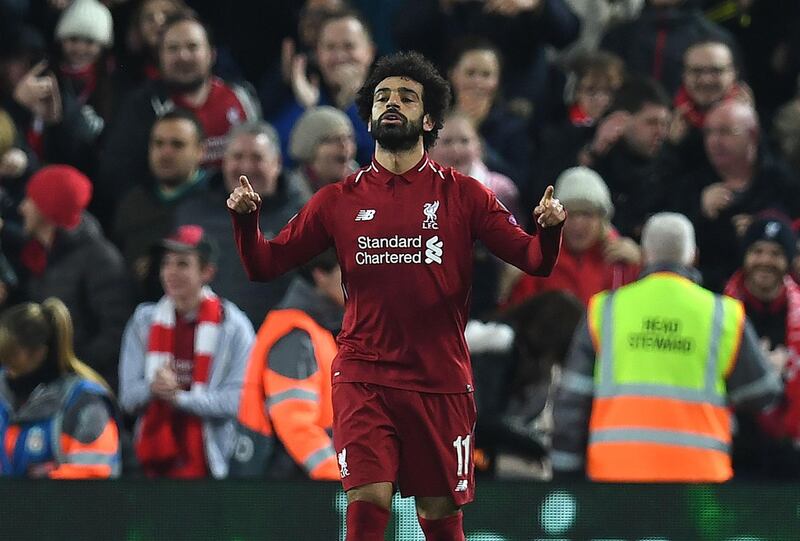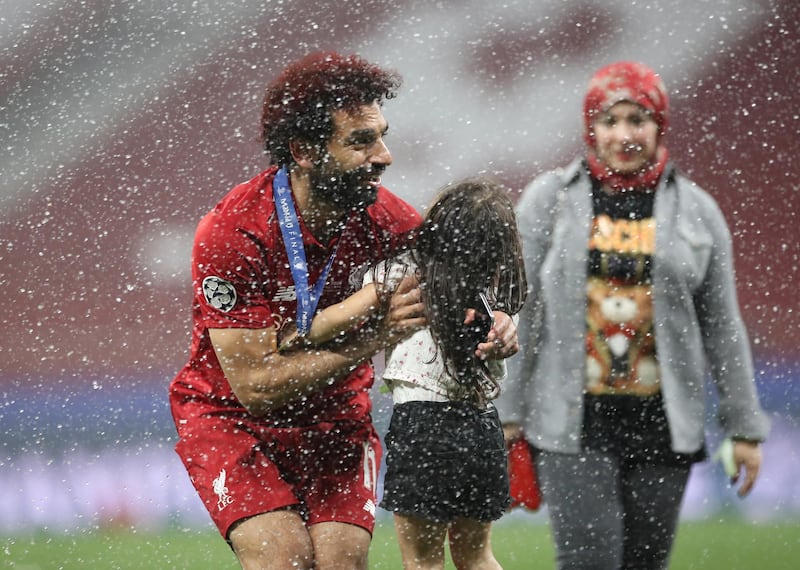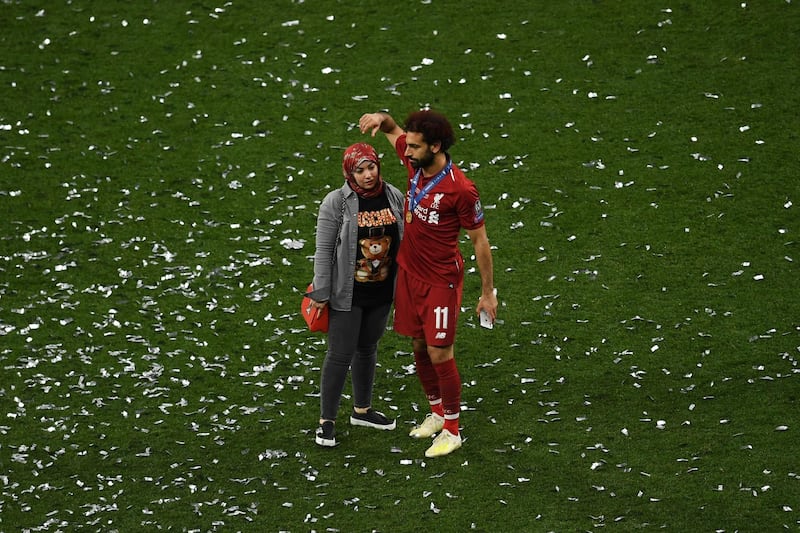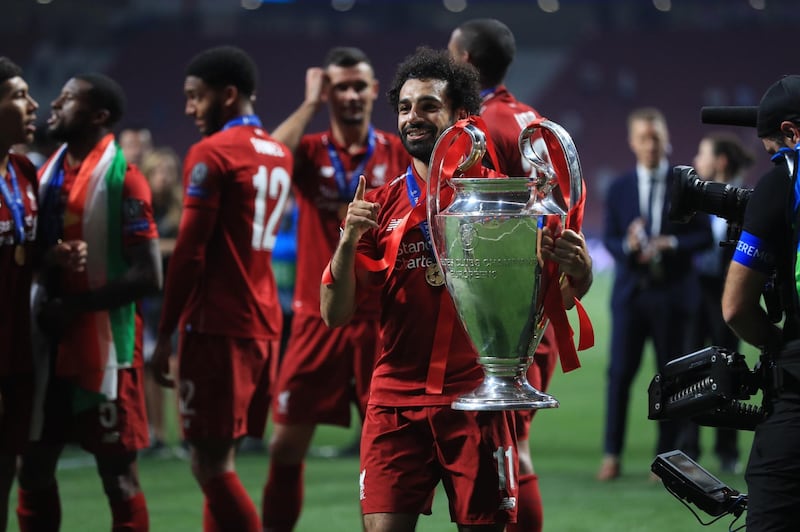The arrival of Mohamed Salah at Liverpool FC has seen a fall in Islamophobia and hate crime in the city, research has suggested.
A study done by Stanford University’s Immigration Policy Lab found an 18.9 per cent drop in hate crimes in Merseyside, the county that Liverpool is in, since he was signed compared to the expected rate had he not. No other offence had a comparable effect. Anti-Muslim tweets by Liverpool fans also halved compared to other major English clubs.
"Taken together, the evidence points to Salah’s rise in prominence causing a decrease in hate crimes in Liverpool FC's home county," the authors wrote.
The Egyptian Salah joined Liverpool in 2017 and has since gone on to become one the English Premier League's best and most recognisable players.
"The survey experiment suggests that these results may be driven by increased familiarity with Islam," the report said.
“These findings suggest that positive exposure to outgroup celebrities can reveal new and humanising information about the group at large, reducing prejudiced attitudes and behaviours,” the research added.
It was found that Salah’s “charismatic” persona and incredible abilities could have helped to humanise Muslims in combination with his public declaration of his faith.
"Salah is often seen joking with his teammates with a signature grin, entertaining his young daughter on the sidelines, and respecting his opponents almost to a fault, for instance, by refusing to celebrate goals against his former clubs," said the report.
His apparent agreeableness and family-man ethos might run counter to the belief by some that Islam is threatening.
“Yes, I know we have one at home. This is a new one” pic.twitter.com/9q8L7fSOgB
— Mohamed Salah (@MoSalah) May 12, 2019
“By watching games, post-game interviews, promotional videos released by the club, and content on Salah’s social media pages, fans are exposed to rich information about Salah’s life on and off the field. Viewers see what a Muslim prayer looks like, perhaps for the first time, when Salah scores,” the authors wrote.
It said followers of the Egyptian attacker on social media might also learn about the rhythm of Ramadan with the footballer sharing images of him breaking the fast alongside explanations.
Pro-Muslim chants referencing Salah by Liverpool fans were also used as evidence that attitudes are changing. Government reports have found that Muslims are among the most disadvantaged people in the UK.
"Few Muslims in British public life have been as open about their Muslim identity, and are as well-liked, as Salah," the research said.
"The public image of Salah as a hero of sorts, and the resulting normalisation of some Muslim identities practices, may have dampened the appetite for harassment and violence toward the city’s Muslims," it added.
Despite this, there was some increase in anti-Muslim comments from fans of opposition clubs.
The study analysed the data of 25 police departments, between 2015 and 2018, 15 million tweets from followers of well-known English football clubs and took in the views of 8,060 Liverpool fans.
Researchers stressed the figures were not part a wider fall in crime in Liverpool – indeed, drug and public order offences had increased.
“Overall, we interpret these results to support the hypothesis that Salah’s arrival at Liverpool FC caused a decrease in extreme acts of bigotry,” they said.
On Saturday, Salah's second-minute penalty helped Liverpool onto Champions League glory over fellow English club Tottenham. The 26-year-old joined from AS Roma, having previously played for London club Chelsea.















